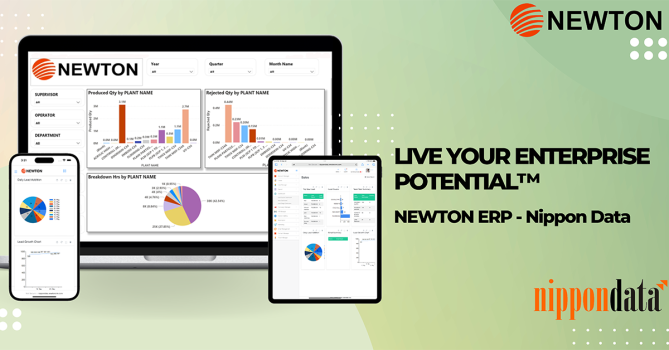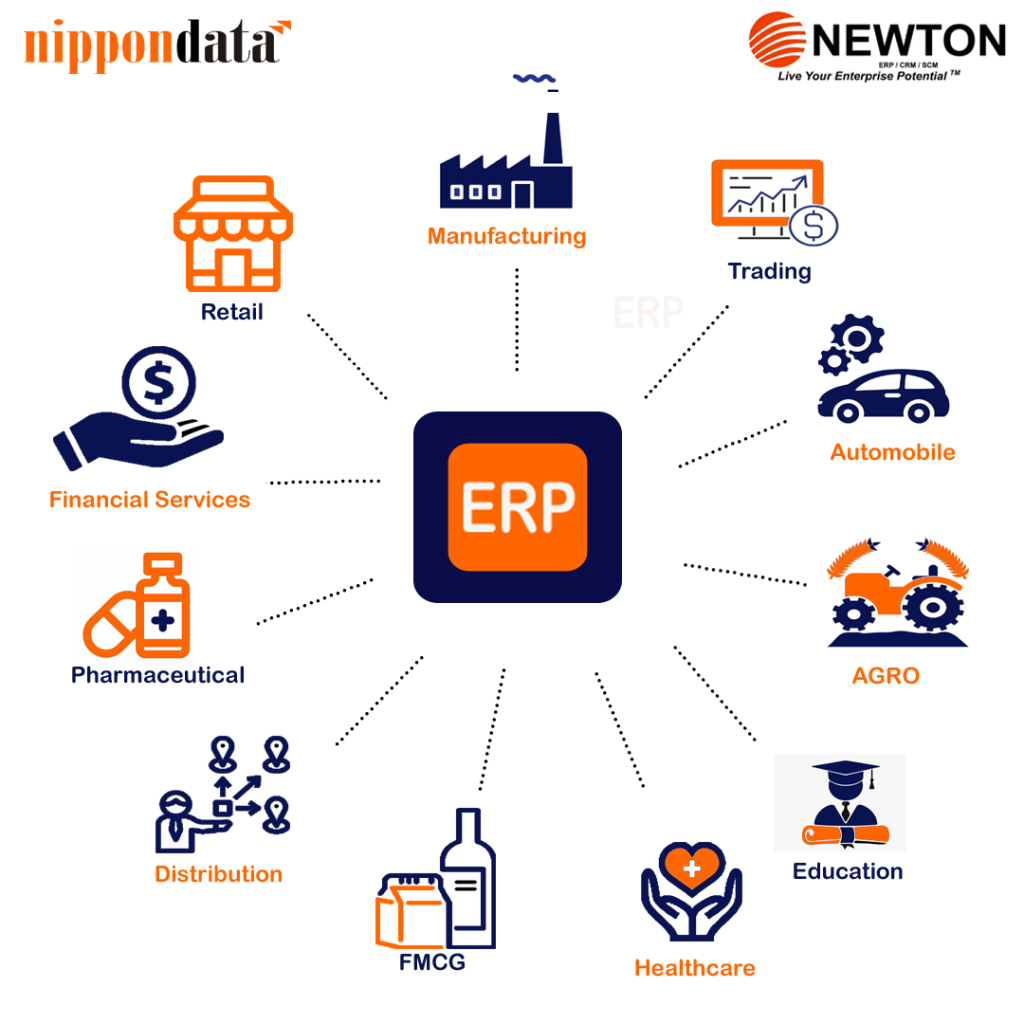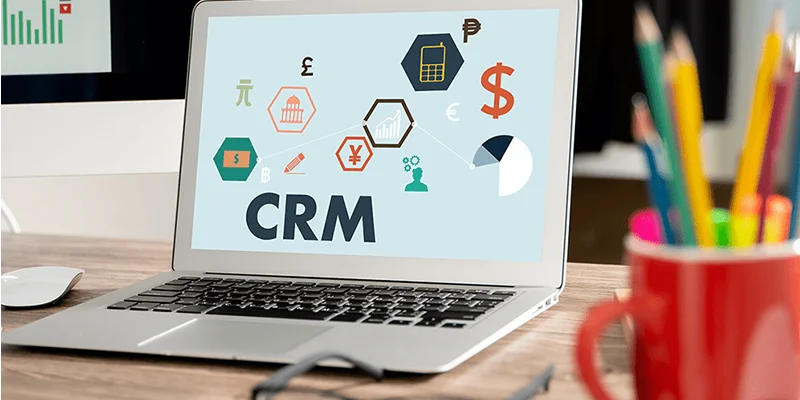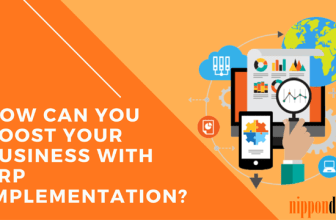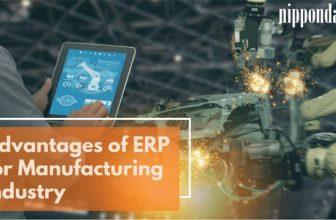Enterprise Resource Planning (ERP) software has become an important tool in the ever-changing world of business management, promising to reorganize processes, boost productivity, and spur expansion. ERP is still a confusing acronym that many people frequently undervalue. Further in this blog, we will debunk the myths surrounding ERP software by highlighting its essential features and the plethora of advantages it provides to companies of all sizes.
What Is ERP Software?
ERP software is, at its core, a complete set of linked programs created to manage and automate several fundamental organizational operations. Accounting, human resources, inventory management, supply chain management, customer relationship management (CRM), and other duties fall under this category. ERP serves as a company’s “central nervous system,” enabling smooth data exchange and communication across various divisions.
The History of ERP
It has been over a century since ERP’s inception. The economic order quantity (EOQ) model, a paper-based manufacturing method for production scheduling, was created in 1913 by engineer Ford Whitman Harris. For a significant duration, EOQ served as the standard in manufacturing. Black & Decker, a manufacturer of tools, revolutionized the industry in 1964 when it became the first business to use a material requirements planning (MRP) system that merged EOQ ideas with a mainframe computer.
Up to the 1983 development of manufacturing resource planning (also known as MRP II), MRP remained the manufacturing industry standard. Concepts like MRP II were created to handle corporate operations outside of manufacturing as computer technology advanced during the 1970s and 1980s, combining finance, customer relationship management, and human resources data. Enterprise resource planning was the name given to this new class of company management software by technology experts in 1990.
Core Functions of ERP Software
- Financial Management
Real-time visibility into an organization’s financial situation is made possible via ERP software. It automates accounting, budgeting, and financial reporting operations to ensure accuracy and adherence to accounting rules.
2. Supply Chain Management
By maximizing inventory levels, keeping track of supplier performance, and allowing demand forecasts, ERP software simplifies the supply chain. This leads to increased productivity, lower expenses, and better customer service.
3. Human Resources
Effective human resource management is crucial for every firm. HR procedures including payroll, hiring, performance reviews, and workforce planning are all automated by ERP systems.
4. Inventory Management
With ERP, businesses can maintain optimal inventory levels, reducing carrying costs and preventing stockouts or overstock situations. It provides real-time insights into inventory status and movement.
5. Customer Relationship Management (CRM)
Customer data is immediately accessible to sales, marketing, and customer support teams thanks to a smooth information flow between ERP and CRM systems. This results in better customer service as well as more customer satisfaction.
6. Manufacturing Operations
ERP software also helps manufacturing businesses with production planning, scheduling, and quality control. Waste is reduced while production processes are optimized.
7. Analytics and Reporting
ERP systems produce thorough reporting and analytics, enabling businesses to make informed decisions. Users may monitor key performance indicators (KPIs), spot trends, and project performance going forward.
Benefits of ERP Software
- Increased Efficiency
ERP improves overall operational efficiency by automating repetitive operations and offering a consistent platform for data management.
2. Cost Reduction
ERP systems contribute to cost reduction through improved resource allocation, simpler business operations, and better inventory management.
3. Enhanced Decision-Making
Businesses are able to quickly make educated decisions because of access to real-time data and sophisticated analytics.
4. Improved Customer Service
Businesses may offer improved customer service thanks to integrated CRM features in ERP, which increases client happiness and loyalty.
5. Scalability
ERP software allows for business expansion. It can handle expansions or diversifications and adjusts to changing demands.
6. Competitive Advantage
ERP helps businesses improve operations, boost efficiency, and react more quickly to market changes, giving them a competitive advantage.
When you need ERP software
Now, you might be thinking when is the right time for your business to adopt ERP software? Read further to find the answer.
- Your Have Outgrown You Current Software
When your present systems are no longer adequate, that is one of the key indicators that it is time to invest in ERP software. Data discrepancies, inefficiencies, and stifled growth can result from utilizing many, disconnected programs to handle various elements of your company. ERP solutions combine these tasks into a single platform, giving you a complete picture of your company’s activities.
2. Your Process Is Inefficient
The productivity and profitability of your business operations may suffer as a result of process inefficiencies. You may require ERP software if you have bottlenecks, mistakes in manual data entry, or delays in information retrieval. Workflows are automated and streamlined by ERP systems, which lowers the need for manual intervention and boosts operational effectiveness.
3. Software Integration Cost is High Currently
Managing disparate software solutions often requires significant investment in integration efforts. These integrations can be complex, time-consuming, and costly. ERP software eliminates the need for multiple integrations, offering a comprehensive solution that covers various aspects of your business. This not only reduces integration expenses but also ensures data consistency and accuracy.
4. You are Struggling to Meet Customer Demands
If you’re finding it challenging to provide timely responses to customer inquiries, fulfill orders, or customize products/services, ERP software can offer a solution. ERP systems enable better demand forecasting, inventory management, and order processing, ensuring you can meet customer expectations efficiently.
5. You are Experiencing Growth
Although exhilarating, business development can often provide operational difficulties. Managing resources, money, and inventories get more difficult as your client base grows. ERP software scales with your company, enabling you to manage rising volumes and preserve operational consistency.
6. You Need Real-time Data Insights
In case your current systems lack the capability to provide instant access to critical business data, you may be making decisions based on outdated information. ERP software offers real-time analytics and reporting, empowering you to make informed decisions quickly.
7. Regulatory Compliance Is a Concern
For many businesses, adherence to rules that are particular to their sector is a requirement. ERP systems frequently include compliance capabilities, assisting you in quickly meeting regulatory obligations and avoiding expensive fines.
8. How ERP Software Can Improve a Business
With ERP software, businesses can pinpoint areas of improvement and find opportunities. However, user adoption is crucial because teams are more likely to identify issues, such as a spike in demand for a particular product, delayed shipments from a supplier, or an imminent cash flow crisis, when more employees have access. The issues can then be proactively mitigated to the greatest degree by employees. Moreover, error-prone tasks can be automated to ensure efficiency. Here is what’s more you get with ERP for your business.
9. Access Data from Anywhere
Gone are those days when the piles of files needed to be shuffled to find data. With ERP, a warehouse manager can easily find out the level of inventory using their phone.
10. Up to Data Information
As inventory is retrieved, payments are posted, or emails are sent to clients, the ERP system is promptly updated since it is always getting information from numerous departments. Because decision-makers are basing their decisions on current facts, this offers a significant advantage.
11. Data-Driven Decision Making
All decision-makers are on the same page due to a shared database. Companies can plan and deliver dynamic reports automatically, and there are no redundant or conflicting sources of information.
Last words
ERP software is a powerful tool that can revolutionize the way businesses manage their operations; it is not a strange black box. It offers a wide variety of advantages and its primary operations cover a wide range of business activities. So get started with the Newton ERP solution by Nippon Data, a leading software service provider in the country. With this, you get the ability to increase productivity, save expenses, make wise decisions, and acquire a competitive edge.

